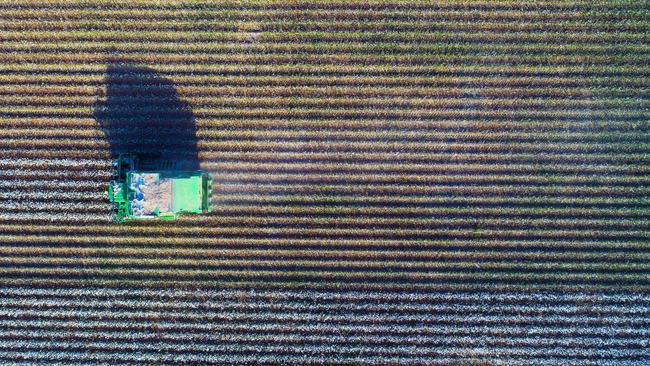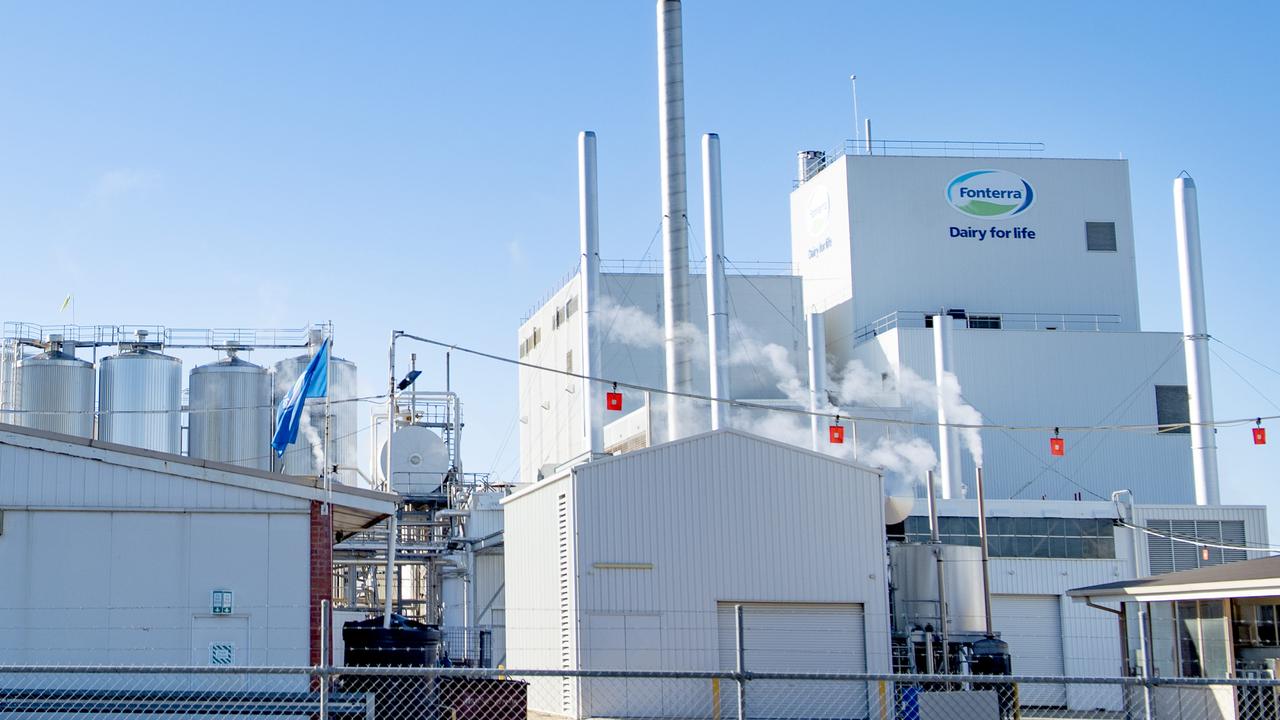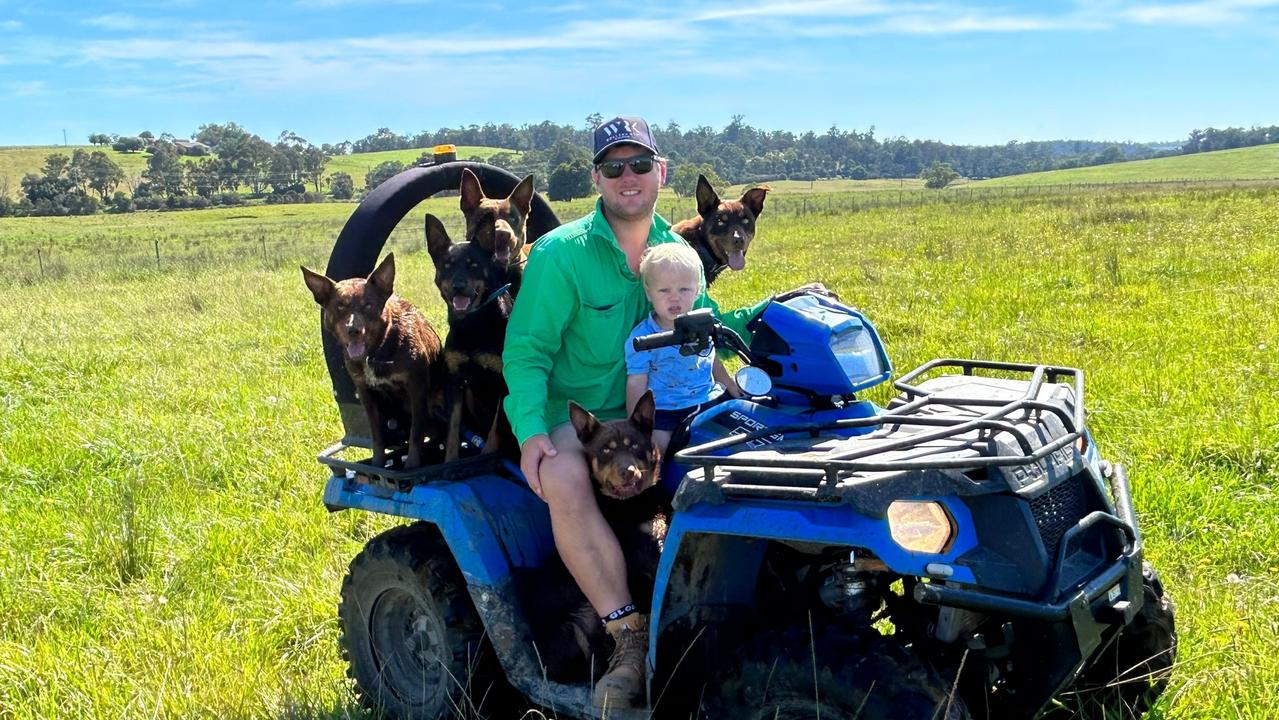PSP Investments from Canada reveals its Australian farmland strategy
The head of the Canadian pension fund — Australia’s biggest ag investor with more than $4 billion of land and water assets — sits down with The Weekly Times to discuss its investment strategy.

There’s no denying the influence that Canadian pension fund PSP Investments has had on the Australian farming landscape.
The Montreal-based fund — which manages the superannuation funds of the nation’s public service, armed forces and the world-famous Royal Canadian Mounted Police — has well and truly flexed its investment muscles in recent years by putting together a huge portfolio of land and water assets valued at more than $4 billion.
Its stamp sits at the bottom of the three biggest deals in Australian agriculture history — the $860 million purchase of Olam Orchards’ almond plantation in northern Victoria in 2019, last year’s $854 million takeover of one of Australia’s biggest landholders in Webster Limited and, this week, the $500 million purchase of NSW-based farming giant Auscott Limited.
The Auscott deal, made in partnership with the Robinson family of Moree in northern NSW, includes 22,000 hectares of developed irrigation country and more than 143,000 megalitres of water entitlements, five ginning facilities capable of producing more than one million bales of cotton annually, two warehousing operations and a classing laboratory.
It caps off a big 2020-21 for PSP, which has also paid almost $100 million for two major dairy farm portfolios in South Australia and Victoria, in addition to growing its extensive beef, sheep, cropping and horticulture ventures.
But just who is PSP and what do they stand for? The Weekly Times yesterday sat down with Mark Drouin, PSP Investments senior managing director and global head of natural resources, to find out.
The Weekly Times: How does this week’s purchase of Auscott fit in with PSP’s investment strategy?
Mark Drouin: It fits in well. Our investment strategy on the ag side really is partnering with best-in-class operating partners — local partners who share our investment philosophy which is focused on the long term, very much focused on operational excellence but also on responsible investing, with a particular emphasis on employee health and safety, and being responsible stewards of the land. Our partnership with the Robinsons has been very emblematic of that strategy … we’ve been partners with them since 2017 or so, we’ve had quite a few very complementary acquisitions we’ve been able to pursue with them, so we are quite pleased.
WT: How do the partnerships work? Do the Australian partners generally retain equity?
MD: Absolutely. Ideally we think we are becoming increasingly smarter in the ag and the timber markets — which is what we focus on exclusively — but we are financial investors. We are always looking to partner with operation management teams with skin in the game, and we provide capital for them to continue to grow and meet long-term strategies.
WT: PSP has invested pretty heavily across horticulture, cropping, livestock and, particularly here in Victoria this year, dairy. Is there one sector that is favoured over the others?
MD: We like the diversification — we like being across (everything) from the row crops to grazing and tree nuts and even into glasshouses. One of the things we are looking for — we are a real asset investor so focused on the land and the water and the biological — are opportunities to get additional benefit from scale, not just through efficiencies but being able to make post-farmgate investments where we can add to our operating margin, reduce volatility and be more meaningful to our clients. The Auscott transaction — with the ginning, the marketing, the logistics and the warehousing — is very complementary, and we like that. So we are looking to do more of those kind of investments.
WT: How does Australia fit into PSP’s global investment strategy?
MD: Australia has been pretty pivotal since the beginning. Our agreement for ag and timber is global — we can invest anywhere in the world — but we decided we wanted to focus on those geographies where rule of law prevails, where foreign investment is welcome and where there is an ability to invest and scale in the farmland that produces the crops that we are focused on. And where we can find a large swath of potential operating partners who share our long-term investment philosophy. Australia has got that in spades. It has got the scale, the farmers operate at a high level of sophistication, they share the general philosophy that we’ve got, and it is where we first got traction with our buy-and-build strategy. We’ve got two sectors that we focus on — timber and ag. With timber you can find the scale opportunities consummate with the kind of capital we need to deploy but ag tends to be a little more difficult to find really large transactions, so technically we focused on a buy and build strategy – find those operating partners, ideally they bring an asset to the table, we commit capital and we help them grow. If you look at our portfolio today, Australia represents slightly more than half our deployment in agriculture. Long-term we see it being evenly split with the US and Australia being the key geographies where we will have most of our assets — not that we won’t look at other places.
WT: PSP has obviously had fairly rapid growth over the past few years with the likes of the Webster takeover and the purchase of the almond plantation and water in northern Victoria, are we likely to see the pace investments increase or slow down moving forward?
MD: Our remit (for Natural Resources) is to be at 5 per cent of PSP’s total allocation. PSP had C$170 billion in assets under management last year — I can’t tell you exactly what we are at today because we haven’t published it yet — but we have been growing at a fairly healthy clip and are expected to double or so in the next 10 years or so which means (from a natural resources point of view) we’ve got to double again our deployment. If you think of the past two or three years we’ve invested somewhere between C$2 billion and C$3 billion on average a year — a large part of that has been in Australia — and I don’t see that slowling down anytime soon.
WT: When you talk about long-term investments, is there a particular investment time frame PSP works towards?
MD: We are very much long-term investors. PSP is still a relatively young pension fund so there’s a long time before the liabilities start kicking in — so to find opportunities to invest where we can get a liquidity premium is attractive. In natural resources we have that, these are long-term assets — you really need to be focused long term to get the benefits and see through the cycles. (Natural resources) also tends to be non-correlated with the other asset classes within PSP, so that is positive, and a kind of built-in inflation hedge. Our liabilities are effectively linked to inflation so to have an asset class that is correlated positively with inflation is good. When we go into an investment we are always thinking decades, not years, and in theory these could be forever-type investments within reason — at least that is the way we see it.
WT: We have seen record rural property prices paid across Australia in recent months. From a PSP viewpoint, are Australian land prices more affordable compared to other parts of the world?
MD: We look through the cycles and price things accordingly. I wouldn’t, by any stretch, say Australia is cheap but if we didn’t think we could earn a return we wouldn’t be investing. Commodity prices have been pretty strong across the board over the last little while and land prices have crept up quite a bit, but we are still seeing attractive opportunities.
WT: Is Australia an easy place to invest as a foreign fund? The Foreign Investment Review Board has copped a bit of heat from the ag investment sector here for the time it takes to finalise approvals – particularly since COVID.
MD: We have been investing in Australia for longer than I have been around — at least the past five years. We have probably been through over 100 FIRB processes and we have been successful with each of them. We understand with COVID, some of the concerns and a lot of other things going on, that the process did slow down a bit, but we’re quite comfortable with the process.
This interview has been edited for clarity
MORE



